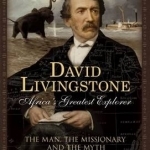
David Livingstone, Africa's Greatest Explorer: The Man, the Missionary and the Myth
Book
In 1841, a twenty-eight-year-old Scottish missionary, David Livingstone, began the first of his...
Gun Culture in Early Modern England
Book
Guns had an enormous impact on the social, economic, cultural, and political lives of civilian men,...

Shelly and the Golden Shell
Book
Uncover the magic of self-discovery with Shelly, the turtle who finds her true colors in a world of...
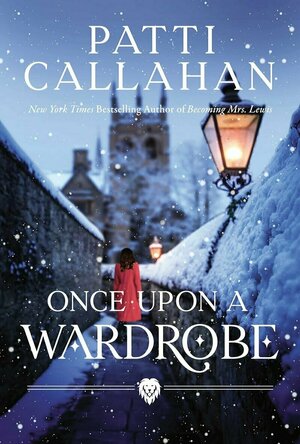
Once Upon a Wardrobe
Book
Now available in trade paper with an eye-catching new cover from the bestselling author of Becoming...
Andy K (10823 KP) rated Chernobyl in TV
Oct 6, 2019
This five part HBO series not only accounts for the immediate aftermath of the disaster, but shows the relatively unknown sagas of those people who were just doing their jobs not knowing their heroism and ultimate sacrifice probably saved millions of lives and maybe the entire planet Earth.
The men in the control room of the Chernobyl nuclear power plant did not know what just happened. They heard an explosion and then thought there was a fire on the roof of one of the buildings. Residents in the nearly town went out to see the spectacle taking their children and stood on a nearby bridge so they could see. Those men with the local fire department were called in the deal with the fire and quickly arrived to see the devastation they faced. Little did they know most of them were doomed with this assignment.
Soon after, nuclear experts are called in to formulate a plan to not only contain and extinguish the atomic blaze, but also to contain the radiation which the wind is carrying to neighboring countries. Proud Russian state officials also downplay the situation to the rest of the world and are wary to ask for outside assistance not wanting to show weakness.
After the plan to douse the flames in successful a new problem arises. Large water tanks which are supposed to be empty now contain water from the fireman's work which now could cause a nuclear megaton explosion killing millions and laying waste to an entire region of the Earth. A plan is also forged to deal with this new development.
Meanwhile, hospitals overrun with casualties are now forced to deal with unimaginable human suffering from those who took the worst of the radiation. Their agony and torture is some of the worst human suffrage short of war time in the history of the Earth. At the same time, a scientist and nuclear expert speaks with the men near death to assume a timeline and details of what took place during those fateful minutes before the disaster.
The monumental feat this mini-series puts to task is truly astonishing. The technical and historical detail filmmakers took to ensure accuracy is among the most impressive I have ever seen. The European locations used for filming were authentic to the last detail and the style of film was harsh and unrelenting. I watched all 5 episodes straight through as I couldn't wait to get to the next installment. As each ended, I was left with my jaw on the floor is amazement wear tears in my eyes and streaming down my face. Creator/writer Craig Mazin should be commended for his screenplay which is based on quite a lot of first-hand accounts of the situation from people who witnessed it.
Lead actors Jared Harris, Stellan Skarsgård and Emily Watson were all astonishing, especially Harris who portrayed Valery Legasov with such conviction, you as the audience were outraged and sympathetic to his role in this ordeal.
The human suffering portrayed onscreen through the use of remarkable make up effects were so real there were several points I had to stop the film just so I could catch my breath. I was so emotional while watching this masterpiece I feel now like a changed person after just having witnessed something as magic as this perfect piece of filmmaking.
I was so enamored with this production I watched all the making of material afterwards and a documentary about the real events including some of the real graphic patient images that I will never forget.
Hopefully, this will be shown in schools in the future and future generations will continue to learn about the Chernobyl catastrophe as a symbol of human arrogance so that it will never be repeated.

Ghost Capture
Photo & Video and Entertainment
App
Ghosts Don't Exist Presents "Ghost Capture" ***NOW WITH 40 TOTAL GHOSTS!! DON'T FORGET TO SUBMIT...
Amanda (96 KP) rated The Tattooist of Auschwitz in Books
May 29, 2019
So I thought about it, and I’ve decided to write my review for this book. I’ve never read books that center around The Holocaust. I never thought I would, because I’ve seen several movies and just the sheer graphics of it alone made me sad. I know this was supposed to be based on a true story, but I went into it with the mindset that it wasn’t true, because most times, some of those stories are fabricated for drama purposes. I’ve read that even Heather Morris added some things to the story for that reason, so again, I saw it as just another story.
The story centers around Lale who is transferred to Auschwitz, but is given the job as a tattooist. From the descriptions, he has to use a really awful needle and has to press down hard enough for the numbers to be seen and never removed – a highly painful process that he has to perform even on children. Then one day, he tattoos a lady that catches his eye, Gita, and from then on he plans to love her and marry her WHEN they get out of Auschwitz.
Off the bat, something about the writing kind of bothered. I couldn’t quite pin point what it was. I read somewhere that this book was originally written as a screen play and I think that was it. To me, the style had a vagueness to it that made it feel like some parts I was reading something from an old story book from when I was in high school. I’m not saying that style was terrible. This particular writing style is not my favorite to read.
I liked the premise of the story. I can’t begin to imagine what it was truly like in those camps. I can’t comment on it either, but like I said, I also didn’t go into this book thinking it was all a true story about these two people. So, there were some bits of the story that I had a hard time believing, but then again, I’m not sure if it was a true part or a fabrication part.
All in all, the story wasn’t bad. I felt so horribly for Lale having to have that job, but he survived, and Gita. The remembering of their families and wondering if they are alive or dead struck me a bit. I know I’ve said this, but I can’t imagine that kind of pain. I feel horrible whenever Lale thought of his mother.
“His mother he can see perfectly. But how do you say goodbye to your mother? The person who gave you breath, who taught you how to live?”
You can’t, that’s the answer.
The book didn’t live up to the hype, in my opinion, but Morris wrote a nice and moving story in the end. I know there are some other stories like this. One of my Twitter friends recommend the Librarian of Auschwitz, so perhaps I will see about that book.
I don’t believe I’ll be seeking out the sequel to this book. I do hope it’s better than the first, but the story is still good.
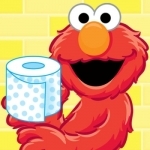
Potty Time with Elmo
Education and Book
App
Elmo reads this animated storybook and song app that will help teach your child about potty training...
Lee (2222 KP) rated Every Time I Die (2019) in Movies
Oct 26, 2020
We begin with Sam (Drew Fonteiro), seeing what he sees as he gently blinks open his eyes to reveal Mia (Melissa Macedo) alongside him in bed. Sam has had a nightmare, and as he heads into the bathroom, he begins to experience an uncomfortable buzzing in his head, which leads to a blackout. When Sam comes around again, he’s crouched on the floor at work, with no memory as to how he arrived there. He’s wearing a paramedic uniform and holding a photo of two children, a brother and sister. On the back of the photo is written ‘remember Sara’.
Sam’s work colleague and friend, Jay (Marc Menchaca) invites Sam to join him and his wife Poppy (Michelle Macedo) at a lodge for the weekend. Poppy is the twin sister of Mia, who we saw in bed with Sam earlier and both Mia and her husband Tyler are also at the lodge. Tyler is a soldier, suffering from PTSD, and it’s clear that Sam and Mia have been having an affair behind his back, which now puts Sam in a bit of an awkward situation.
By this point, we’ve already witnessed Sam experiencing several more blackouts, including one while driving to the lodge. Each time, Sam has no recollection of what happened during the blackout, although a video recorded during one of the blackouts by his friends, shows that he does remain conscious and able to hold a conversation. Occasionally we get flashbacks and dream sequences which reveal that the brother and sister from the photo earlier are in fact Sam and his sister Sara, who drowned in a terrible accident when they were both children.
The first half of Every Time I Die is a slow, frustrating experience, not helped by the fact that the character of Sam is incredibly dull. Consequently, we feel no emotional connection to Sam, despite the childhood trauma he suffered and the turmoil he now experiences as an adult. Thankfully, the second half picks up when a jealous Tyler discovers that his wife has been cheating on him with Sam and murders Sam out by a lake in the forest. Thanks to the first-person perspective that was utilised earlier, we discover that Sam then transferred into the body of friend Jay, and must now try and convince his friends what Tyler has done. Not an easy task when Jay has a history of mental illness, leading the others to believe he’s had a relapse.
From there, Every Time I Die is just a roller coaster ride of clever ideas and twists, constantly dragged down by further flashbacks and confusing dream sequences, which are meant to help us and Sam understand what happened to him and his sister, but repeatedly stall the narrative momentum instead.
That being said, for the most part, I really enjoyed Every Time I Die. Aside from the slow first half, and the character of Sam, it’s well written, well crafted and with a satisfying, heart-warming finale.
RəX Regent (349 KP) rated The Pirates! An Adventure With Scientists (2012) in Movies
Feb 19, 2019
After building model sets in order to plan out a CGI animation similar to their 2011 Arthur Christmas, they quickly decided to return to their roots and this 3-D adventure was filmed as a stop-motion movie and is much the better for it.
The story itself, whilst following real life characters such as Queen Victoria and Charles Darwin, is pure, adulterated fiction, not quite from the school of Ridley Scott in which he claims to be making historical epics whilst taking liberties, I grant you, but still, I’m still having to explain to my 5 year old daughter that Queen Victoria was a super villain as portrayed here! We follow a crew of Pirates, lead by The Pirate Captain (Hugh Grant) as he attempts to win the converted pirate of the year but to no avail.
After an encounter with Charles Darwin (David Tennent), he learns that the ships “parrot”, Polly, is in fact a thought to be extinct Dodo and the pair along with his crew, return to England in order to win Scientist Of The Year as well. But Queen Victoria wants the bird, in order to eat it with other world leaders who gather to taste rarest cuisine.
My main issue with this film is that Victoria is presented a villain and this is now how my 5 year old daughter, who loves this film by the way, now looks upon as a baddie! But other than that this is a witty film built on wit. Every frame contains a joke of some kind, whether it be in the background, audible or part of the action.
Ardman’s style is unmistakable and quintessentially British and I suspect that whilst some international audiences will find this quaint, it will probably be lost on many.
But this is an underrated adventure, with lovable characters, villains and all told at a good pace.
Not something to be used for your history homework but still and enjoyable romp none the less.

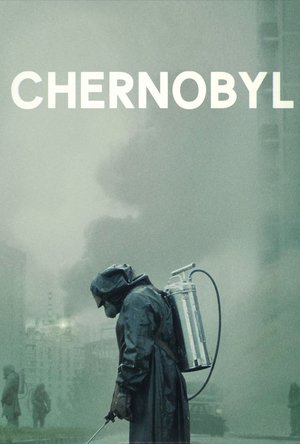
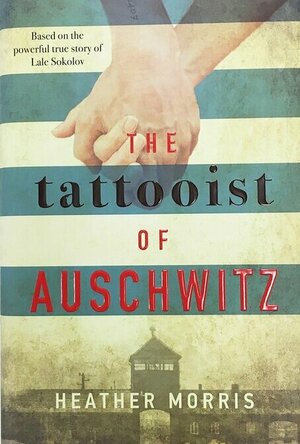
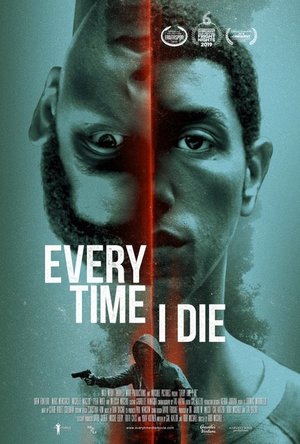
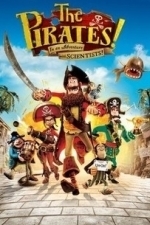
Elli H Burton (1288 KP) Nov 2, 2019
Andy K (10823 KP) Nov 2, 2019